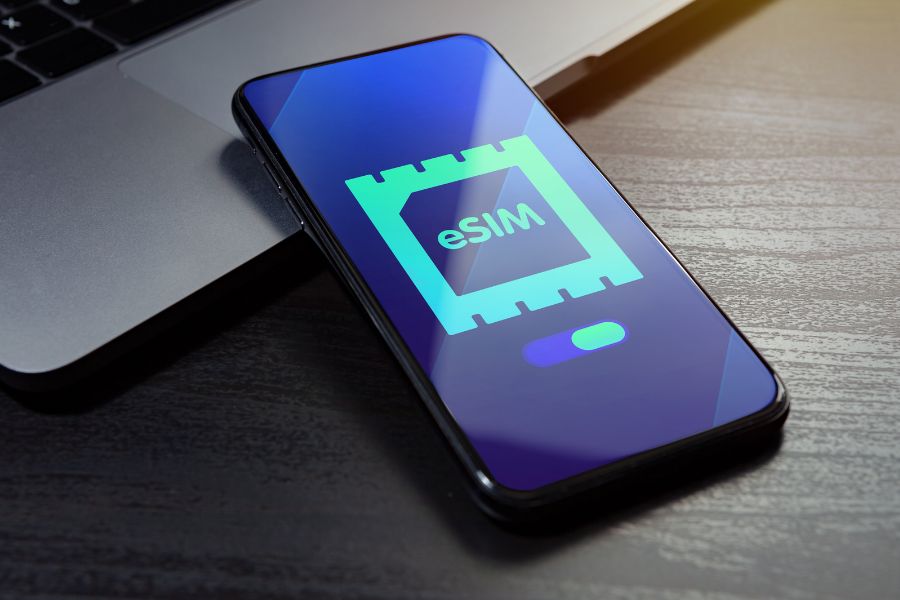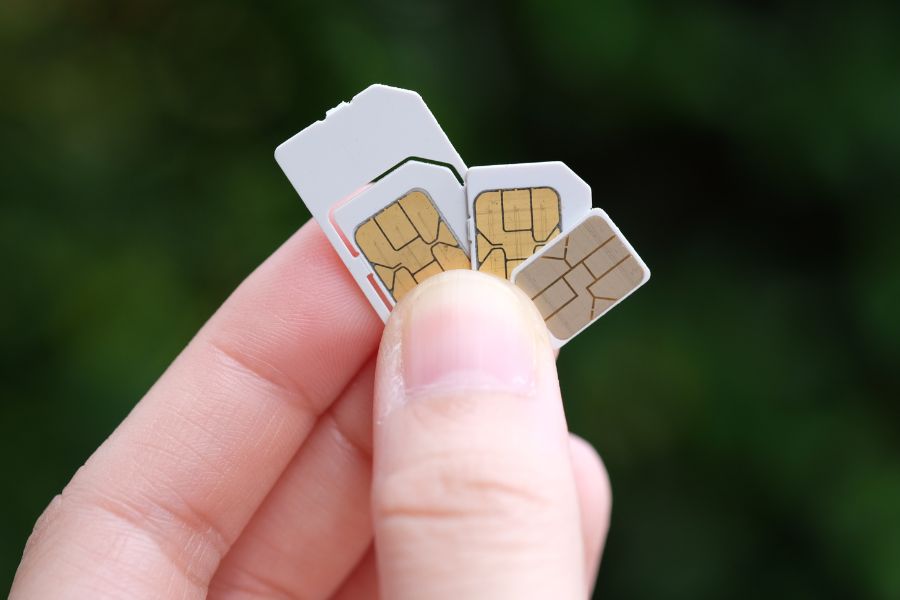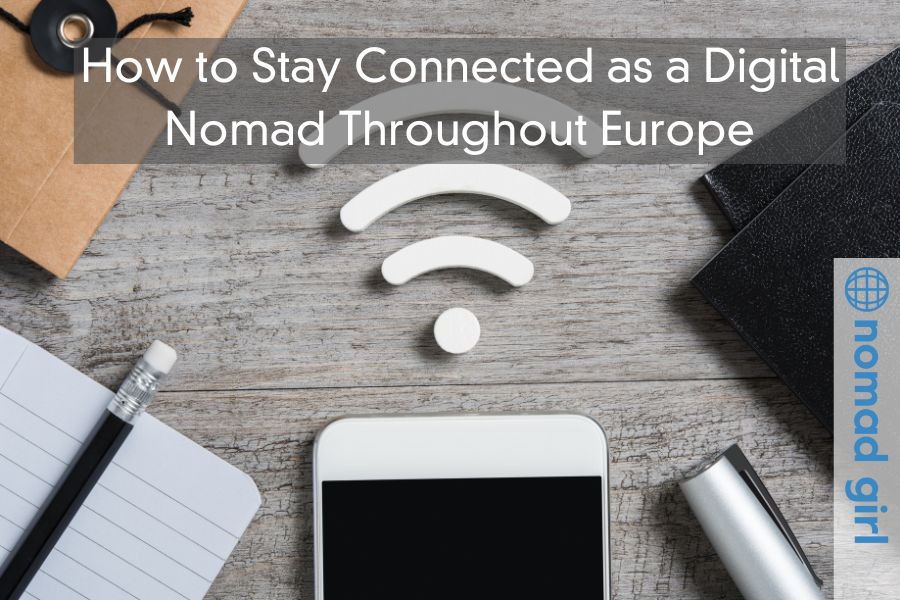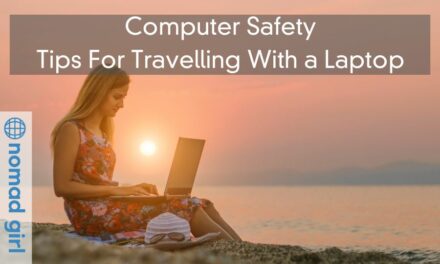Europe is a tapestry of rich history, vibrant culture, and technological advancement, making it a top destination for tourists and digital nomads alike. Staying connected while traversing this diverse continent is not just about convenience—it’s a necessity. Reliable connectivity ensures smooth remote work, seamless navigation, and effortless communication. Mastering the art of staying connected in Europe involves understanding the tools, services, and strategies available to ensure a hassle-free digital experience.
Setting Up Mobile Connectivity

eSIM Technology: A Digital Revolution
eSIM technology has transformed the way travellers stay connected. These virtual SIM cards allow users to skip the hassle of purchasing and installing physical SIM cards. Providers such as Simify, and SimsDirect offer data plans specifically tailored to European travel. The process is simple: purchase a plan, download the eSIM, and activate it directly from your phone. eSIMs are ideal for travellers hopping between countries, offering seamless transitions without needing to swap physical cards.
Local SIM Cards: Flexibility and Affordability

Local SIM cards remain a popular choice for travellers seeking high data limits and competitive pricing. Leading providers like Vodafone, Orange, and TIM offer prepaid plans that cater to tourists. These SIM cards are widely available at airports, convenience stores, and dedicated kiosks. Activation is straightforward, and plans often include generous data allowances, perfect for heavy internet users.
International Roaming Plans: Convenient but Costly
International roaming plans from home carriers provide convenience but often come with steep costs. Travelers should research their provider’s offerings and negotiate for tailored plans that fit their travel needs. Some carriers provide competitive roaming packages that allow for consistent connectivity across Europe without additional hassle.
Accessing Reliable Wi-Fi
Coworking Spaces and Cafés
Coworking spaces across Europe cater to digital nomads and remote workers. Chains like WeWork, Impact Hub, and local hubs offer reliable internet, comfortable working conditions, and networking opportunities. For those who prefer a more casual setting, cafés with dependable Wi-Fi are abundant in European cities. Apps like Workfrom and Croissant help locate the best spots with reliable internet connections.

Meetup with other long-termers at a coworking space.
Portable Wi-Fi Hotspots
Portable Wi-Fi devices provide a reliable solution for travellers needing constant connectivity. These devices offer flexibility and uninterrupted internet access across multiple locations. Providers like Tep Wireless and Skyroam specialize in Europe-wide coverage, enabling users to connect multiple devices simultaneously. Sharing the device with travel companions can also reduce costs, making it a practical choice for groups.
Accommodation Wi-Fi
Wi-Fi availability and reliability vary greatly across accommodations in Europe. Before booking, it’s essential to confirm internet speed and stability with the host or property manager. Tools like Speedtest or Fast.com can verify speeds upon arrival, ensuring you can work or stream without interruptions.
Staying Secure Online
VPN for Safety and Accessibility
A VPN is a vital tool for travellers prioritizing online security. It protects sensitive data from potential breaches and bypasses regional content restrictions. Services like ExpressVPN and NordVPN ensure secure connections on public networks while maintaining privacy. VPNs also enable access to work platforms and streaming services unavailable in certain countries.
Managing Online Accounts
Enabling two-factor authentication adds an extra layer of security to online accounts. This measure ensures protection even if login credentials are compromised. Travellers should also avoid using public computers for accessing sensitive platforms to mitigate potential risks.
Public Wi-Fi Risks
Public Wi-Fi networks, while convenient, can be risky. It’s crucial to connect only to secure and reputable networks. Avoid conducting financial transactions or sharing sensitive information without the added security of a VPN. Awareness and caution are key to staying safe on public networks.
Offline Work and Connectivity Solutions
Offline Tools and Apps
Offline functionality ensures productivity when internet access is unavailable. Tools like Google Drive, Notion, and Maps.me allow users to download essential files and navigation resources for offline use. These apps provide a safety net for travellers in remote areas or locations with limited connectivity.
Portable Backup Options
Portable hard drives and cloud storage solutions protect important data against loss or corruption. Pairing these with power banks ensures that devices stay charged, even during extended travel days. These tools are essential for maintaining work continuity and safeguarding critical files.
Printed Backup Resources
Having physical copies of itineraries, client details, and emergency contacts serves as a reliable fallback. Printed materials provide peace of mind and practicality when technology fails or connectivity is unavailable.
Cost Management for Connectivity
Budgeting for Mobile and Wi-Fi
Connectivity costs vary significantly across Europe. Researching options beforehand helps travellers budget effectively. Opting for prepaid SIM cards, portable Wi-Fi rentals, and free Wi-Fi options in coworking spaces or accommodations can minimize expenses without compromising connectivity.
Tracking Data Usage
Monitoring data usage is essential to avoid unexpected overages. Apps like My Data Manager help control consumption by tracking data use in real time. Pre-downloading content and disabling background updates are simple strategies to conserve data while travelling.
Group Sharing Options
Pooling resources with fellow travellers reduces the financial burden of portable Wi-Fi or shared SIM plans. Group sharing fosters collaboration and ensures everyone stays connected at a lower cost.
Top European Destinations for Digital Nomads
Cities with Reliable Connectivity
Cities like Lisbon, Berlin, and Tallinn lead the way in digital nomad connectivity. Lisbon boasts a growing number of coworking spaces and fast internet, making it a favourite among remote workers. Berlin provides free Wi-Fi hotspots and a tech-savvy atmosphere. Tallinn, with its e-residency program and city-wide internet coverage, sets a high standard for digital innovation.

Lisbon
Remote-Friendly Retreats
For those seeking tranquillity, the Canary Islands offer a unique blend of great weather and reliable internet, perfect for combining work and leisure. Rural areas in France and Italy provide picturesque retreats, though portable Wi-Fi devices are often necessary to ensure consistent connectivity.
Coworking and Coliving Spaces
Coworking and coliving spaces like Outsite and Selina provide seamless integration of work and living. These communities are designed for digital nomads, offering reliable internet, comfortable accommodation, and the chance to network with like-minded individuals.
Tools and Resources for Digital Nomads
Communication Apps
Apps like Slack, Zoom, and WhatsApp streamline communication with clients and teams. VoIP services like Skype and Google Voice enable affordable international calls, making them essential tools for remote workers.
Travel-Friendly Gadgets
Portable routers, lightweight laptops, and multi-port USB hubs simplify connectivity on the go. Universal adapters ensure compatibility with European power outlets, keeping devices charged and ready for use.
Digital Nomad Communities
Digital nomad platforms like Nomad List and Meetup provide opportunities to connect with other travellers and share insights. These communities foster collaboration, networking, and a sense of camaraderie among like-minded individuals.
Planning for Long-Term Connectivity
Remote Work Visas
Several European countries, including Estonia, Croatia, and Portugal, offer remote work visas tailored to digital nomads. These visas simplify residency requirements and enable long-term connectivity planning, making Europe an attractive base for remote workers.
Flexible Data Plans
Frequent travellers benefit from flexible data plans that accommodate cross-border usage. Regional providers and services like Google Fi offer tailored solutions for seamless connectivity during extended trips.
Residency Considerations
Opening local bank accounts and subscribing to utility services optimize connectivity and reduce long-term costs for those planning extended stays. These measures simplify financial transactions and provide added stability for digital nomads.
Conclusion
Staying connected while exploring Europe is an achievable goal with the right tools and strategies. From embracing eSIM technology to leveraging coworking spaces and safeguarding online security, travellers can navigate the continent without digital disruptions. Prioritizing cost management, secure practices, and reliable technology ensures a seamless and productive journey. Europe offers a unique blend of connectivity and adventure, allowing digital nomads and tourists to work, explore, and thrive.


















